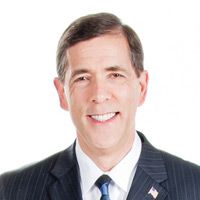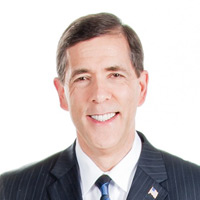7 Steps to Help Find the Right Financial Professional
It’s up to investors to do a little detective work when considering who should advise them.


Profit and prosper with the best of Kiplinger's advice on investing, taxes, retirement, personal finance and much more. Delivered daily. Enter your email in the box and click Sign Me Up.
You are now subscribed
Your newsletter sign-up was successful
Want to add more newsletters?

Delivered daily
Kiplinger Today
Profit and prosper with the best of Kiplinger's advice on investing, taxes, retirement, personal finance and much more delivered daily. Smart money moves start here.

Sent five days a week
Kiplinger A Step Ahead
Get practical help to make better financial decisions in your everyday life, from spending to savings on top deals.

Delivered daily
Kiplinger Closing Bell
Get today's biggest financial and investing headlines delivered to your inbox every day the U.S. stock market is open.

Sent twice a week
Kiplinger Adviser Intel
Financial pros across the country share best practices and fresh tactics to preserve and grow your wealth.

Delivered weekly
Kiplinger Tax Tips
Trim your federal and state tax bills with practical tax-planning and tax-cutting strategies.

Sent twice a week
Kiplinger Retirement Tips
Your twice-a-week guide to planning and enjoying a financially secure and richly rewarding retirement

Sent bimonthly.
Kiplinger Adviser Angle
Insights for advisers, wealth managers and other financial professionals.

Sent twice a week
Kiplinger Investing Weekly
Your twice-a-week roundup of promising stocks, funds, companies and industries you should consider, ones you should avoid, and why.

Sent weekly for six weeks
Kiplinger Invest for Retirement
Your step-by-step six-part series on how to invest for retirement, from devising a successful strategy to exactly which investments to choose.
It isn’t easy to find a financial professional these days.
Oh, there are plenty of us out there — but it’s becoming increasingly difficult to find an individual or firm you know you can trust.
First, there’s the confusing collection of certifications I call “designation soup.” Then, there’s the current contentious debate over fiduciary vs. suitability standards. And to top it off, we have the “testimonial rule” in the Investment Advisers Act, which says Registered Investment Advisers can’t directly or indirectly distribute an advertisement that includes a client testimonial or a client’s endorsement. So, we can’t give out a list of references or publish an online review.
From just $107.88 $24.99 for Kiplinger Personal Finance
Become a smarter, better informed investor. Subscribe from just $107.88 $24.99, plus get up to 4 Special Issues

Sign up for Kiplinger’s Free Newsletters
Profit and prosper with the best of expert advice on investing, taxes, retirement, personal finance and more - straight to your e-mail.
Profit and prosper with the best of expert advice - straight to your e-mail.
This all means it’s up to individuals to do some research if they want to find an experienced, knowledgeable and honest financial professional to handle their retirement planning.
Here are seven steps that can help put you on the right track:
1. Look for a planning firm that can provide comprehensive services.
Some firms specialize in one product or service. Look for a firm that can provide you with a holistic plan that offers a variety of services and financial vehicles from which to choose. Firms that offer comprehensive services, or who partner with qualified professionals to provide the services they may not be able to offer, can incorporate more aspects of your financial life into your overall strategy. Examples would be an investment firm with the appropriate professionals who can assist in insurance, estate or tax planning, allowing you to do more planning under one roof.
2. Make sure your philosophies align.
There are different types of financial professionals with many different specialties. Most focus on wealth accumulation — investing and growing your assets while you’re still working. When you’re near or in retirement, though, you’ll want to find an individual or firm that specializes in preservation and distribution. They should be experienced in protecting your assets and producing an income that will last your lifetime. They should understand tax-efficient strategies and how to hedge against inflation. And they should do legacy and estate planning, or work with someone, like an attorney, who does.
Some financial professionals also have subspecialties; they focus on the unique needs of widows, divorcees, small-business owners and others. To be sure that the person you’re working with understands your needs, you’ll have to ask the right questions. I suggest meeting with a few financial professionals or firms so you can find the right fit.
3. Work with a fiduciary.
The Department of Labor’s fiduciary rule, which requires financial professionals to look out for the best interests of their clients when working with qualified funds (money set aside for retirement on a pre-tax basis), began implementation on June 9, 2017. But consumers didn’t have to wait for that to be protected. They just had to limit their search to Registered Investment Advisers or CERTIFIED FINANCIAL PLANNERS (CFP), who have always been required by law uphold the fiduciary standard of care.
Why is this important? There are financial professionals who work under the suitability standard for non-retirement assets. They use a handful of factors — such as the investor’s age, risk tolerance and net worth — to make recommendations they think are suitable, but they aren’t required to work in the client’s best interest when making recommendations. That’s not to say that those financial professionals who are held to a suitability standard don’t look out for the interest of their clients, but those held to a fiduciary standard are legally obligated to do so.
If you don’t have a lot of assets, your hiring options may be limited; investment advisers held to a fiduciary standard of care sometimes have minimums and don’t take smaller accounts. But if you can get this conflict-free advice, you should.
4. Choose an independent adviser.
Some financial professionals contract with and operate under the umbrella of a larger firm that creates and sells financial products and services. Others are actual employees of those firms. Independent financial advisers, on the other hand, are not affiliated with any company, bank or other corporate entity, so they aren’t limited in the products they can offer.
No one provider has a lock on the best products in every category, so you want someone who represents a multitude of companies, who can put together the best financial plan possible and fund it with all the latest and greatest vehicles that are out there.
5. Education should be ongoing.
There are a lot of different designations and certifications for financial professionals. I really believe the CERTIFIED FINANCIAL PLANNER (CFP) designation to be the core designation in the business today. It has its own code of ethics, and the college-level coursework must be completed before you sit for the certification exam. In addition, CFP professionals must complete 30 credit hours of continuing education every two years, including two hours of ethics training.
You should know what it takes for a person to achieve the various letters that appear on his business card. Don’t be afraid to ask, or check it out on Google.
6. Look at experience and depth on the bench.
This is a tricky one. You want a financial professional who’s been around for a while, but maybe not too long. If you like a financial professional but they are close to retirement age, make sure they have a succession plan and that you are acquainted with others at the firm.
7. Do a little detective work.
There are a couple of quick checks you can do to be sure your financial professional is who and what he says he is. With BrokerCheck you can check to see if a financial professional or firm is registered to sell securities, offer investment advice or both. And you can get some information on employment history, licensing and regulatory actions, arbitrations and complaints.
You also can do a database search through the SEC. And, if it’s appropriate, check your state’s office of insurance regulation.
For backup, you might try the Better Business Bureau or just do a Google search. You may find the financial professional declared bankruptcy recently, or that they haven’t paid their taxes — and then you can decide if that’s really the person you want handling your life savings.
Once you’ve taken these steps, you can feel pretty good about making the correct choice. Then it’s all about personality, communication and your general comfort level when you meet.
The right financial professional should be able to help you get to and through retirement with fewer concerns and more assets. So take the time to find someone who rises to your expectations and meets all your needs.
Kim Franke-Folsted contributed to this article.
Profit and prosper with the best of Kiplinger's advice on investing, taxes, retirement, personal finance and much more. Delivered daily. Enter your email in the box and click Sign Me Up.

Richard W. Paul is the president of Richard W. Paul & Associates, LLC, and the author of "The Baby Boomers' Retirement Survival Guide: How to Navigate Through the Turbulent Times Ahead." He holds life and health insurance licenses in Michigan and Florida and is a Certified Financial Planner, Registered Financial Consultant, Investment Adviser Representative and insurance professional.
-
 5 Vince Lombardi Quotes Retirees Should Live By
5 Vince Lombardi Quotes Retirees Should Live ByThe iconic football coach's philosophy can help retirees win at the game of life.
-
 The $200,000 Olympic 'Pension' is a Retirement Game-Changer for Team USA
The $200,000 Olympic 'Pension' is a Retirement Game-Changer for Team USAThe donation by financier Ross Stevens is meant to be a "retirement program" for Team USA Olympic and Paralympic athletes.
-
 10 Cheapest Places to Live in Colorado
10 Cheapest Places to Live in ColoradoProperty Tax Looking for a cozy cabin near the slopes? These Colorado counties combine reasonable house prices with the state's lowest property tax bills.
-
 Don't Bury Your Kids in Taxes: How to Position Your Investments to Help Create More Wealth for Them
Don't Bury Your Kids in Taxes: How to Position Your Investments to Help Create More Wealth for ThemTo minimize your heirs' tax burden, focus on aligning your investment account types and assets with your estate plan, and pay attention to the impact of RMDs.
-
 Are You 'Too Old' to Benefit From an Annuity?
Are You 'Too Old' to Benefit From an Annuity?Probably not, even if you're in your 70s or 80s, but it depends on your circumstances and the kind of annuity you're considering.
-
 In Your 50s and Seeing Retirement in the Distance? What You Do Now Can Make a Significant Impact
In Your 50s and Seeing Retirement in the Distance? What You Do Now Can Make a Significant ImpactThis is the perfect time to assess whether your retirement planning is on track and determine what steps you need to take if it's not.
-
 Your Retirement Isn't Set in Stone, But It Can Be a Work of Art
Your Retirement Isn't Set in Stone, But It Can Be a Work of ArtSetting and forgetting your retirement plan will make it hard to cope with life's challenges. Instead, consider redrawing and refining your plan as you go.
-
 The Bear Market Protocol: 3 Strategies to Consider in a Down Market
The Bear Market Protocol: 3 Strategies to Consider in a Down MarketThe Bear Market Protocol: 3 Strategies for a Down Market From buying the dip to strategic Roth conversions, there are several ways to use a bear market to your advantage — once you get over the fear factor.
-
 For the 2% Club, the Guardrails Approach and the 4% Rule Do Not Work: Here's What Works Instead
For the 2% Club, the Guardrails Approach and the 4% Rule Do Not Work: Here's What Works InsteadFor retirees with a pension, traditional withdrawal rules could be too restrictive. You need a tailored income plan that is much more flexible and realistic.
-
 Retiring Next Year? Now Is the Time to Start Designing What Your Retirement Will Look Like
Retiring Next Year? Now Is the Time to Start Designing What Your Retirement Will Look LikeThis is when you should be shifting your focus from growing your portfolio to designing an income and tax strategy that aligns your resources with your purpose.
-
 I'm a Financial Planner: This Layered Approach for Your Retirement Money Can Help Lower Your Stress
I'm a Financial Planner: This Layered Approach for Your Retirement Money Can Help Lower Your StressTo be confident about retirement, consider building a safety net by dividing assets into distinct layers and establishing a regular review process. Here's how.